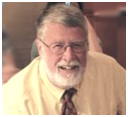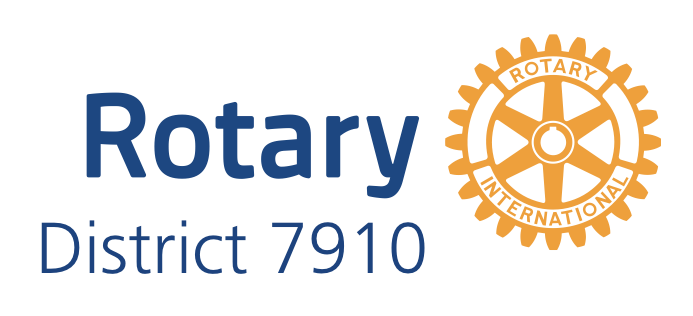Rotarian Essay - June 13, 2017
Rotary and Civic Education: A Great Opportunity
By Ron Goodenow
 One of my favorite historians is Timothy Snyder of Yale University. He has penned brilliant books on Word War Two, the Holocaust and bloodbaths in Central Europe with considerable attention paid to the cultures that nurtured and supported Hitler and Stalin. I recommend them to my friends.
One of my favorite historians is Timothy Snyder of Yale University. He has penned brilliant books on Word War Two, the Holocaust and bloodbaths in Central Europe with considerable attention paid to the cultures that nurtured and supported Hitler and Stalin. I recommend them to my friends.Snyder has just published Tyranny in Twenty Lessons, which I am reading. The book begins with, “Americans are no wiser than the Europeans who saw democracy yield to fascism, Nazism, or communism … . Our one advantage is that we might learn from their experience.” There’s more to this, though, than understanding history. As in the words of the great educational reformer, John Dewey, “Democracy needs to be reborn in each generation, and education is its midwife,”
I don’t think I have a single reader, regardless of political beliefs, who hasn’t been concerned about recent events in our country and other parts of the world. But because of our community service, most of us understand political processes and the workings of democracy, though I must say that everyday I see something - who appoints who, what does an agency does, who can investigate what - I do not understand. I was therefore very interested to hear Snyder respond to a question on CNN when asked the one thing he would like to see us be doing right now to protect our democracy. “Civic education,” he said. “We must have civic education.”
According the Stanford Encyclopedia of Philosophy, which has an excellent section on civic education, the broadest definition “civic education" means all the processes that affect people's beliefs, commitments, capabilities, and actions as members or prospective members of communities. Families, governments, religions, and mass media are just some of the institutions involved in civic education, understood as a lifelong process.There are several good reasons for the emphasis on schools. First, empirical evidence shows that civic habits and values are relatively easily to influence and change while people are still young. Another reason is that schools in many countries have an explicit mission to educate students for citizenship. It is important not to lose sight of the fact that civic education takes place at all stages of life, and in many venues other than schools.
The need is clear. A recent National Educational Assessment report showed that the civic knowledge of eighth-grade students is quite deficient, with many falling well below "basic knowledge.: Just as worrisome are data showing how little our students know about geography and history. Take a look at Preparing Citizens Report on Civic Learning and Engagement Prepared by the Working Group on Civic Learning and Engagement for the Massachusetts Board of Elementary and Secondary Education, published in 2015. There is virtually no evidence to show progress despite this and other reports.
The challenges for Rotary would seem appealing, and can be supported by youth programs such Rotary Youth Leadership Awards, Interact and Rotaract - particularly since civic education is not merely sitting in a classroom and hearing lectures on the Constitution. It is also all about community service and solving community problems. But schools are very important.
Back in the days when I was on the faculty at Boston University, we studied area civic-education programs to which we could introduce student teachers and provide findings from our research. One school in particular, Brookline High School, which had a multicultural population, not only offered a strong social-studies curriculum and courses on civic responsibility, but also a school assembly to recommend and vote on school programs and community responsibility. There was role-playing and, most enticing, formal student participation on important school committees that dealt with discipline, community responsibility, and even curriculum development. Underlying all this, was the simple philosophy that we live in a participatory democracy. And, we all must learn how to understand and address problems together.
Think of it Rotarians: Many of our own communities have large numbers of new citizens and their children. Some, such as the one in which my club is located, not only have many programs in the schools to help young people adjust, but also have libraries that are increasingly developing community-education programs to serve both young people and adults, many of whom doubtless do not know the workings of town, state or national government. Increasingly, in light of current national developments, many communities are developing "indivisible" groups to address environmental problems and civic participation. What a great opportunity to develop internships and workshops with public officials in a "Rotary Civic Education Initiative!" that can draw on the many civic-education resources one can find on the web and in our own communities. All, in the name of "learning by doing" - another John Dewey phrase.
Finally, Rotary is a global organization that prizes global knowledge, exchanges and much more. Here, too, is an opportunity. Do our members and community members know about Rotary’s long relations with the United Nations and other organizations such the World Health Organization, and what has been accomplished? Do they know what the UN and WHO do and don't do? What can we learn from what Rotary does to aid citizen education in other countries? Of course, when we encourage students and neighbors to participate in community projects and services, we are encouraging good citizenship. But there is much more to think about.
- Renewing the Social Contract: A Report of the Massachusetts Special Commission on Civic Engagement and Learning
- Rotary Adventure in Citizenship
- Rotary’s Adventures in Citizenship: An education on being Canadian
If you have good examples of Rotary involvement in civic and citizenship education, drop a note to me so I can follow up. Note: These views are strictly personal.
Ron Goodenow, a member of the Rotary Club of Westborough, may be reached at ron.goodenow@gmail.com.


